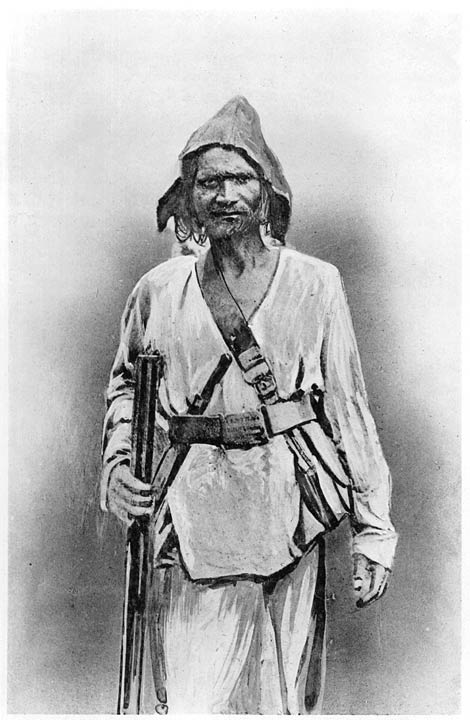
Indian history is replete with stories of bravery, resistance, and sacrifice against the oppressive British colonial rule. Among these heroes is the inspiring figure of Tantya Bhil, a tribal leader from Central India who stood as a beacon of hope for the downtrodden. Hailed as the “Robin Hood of India,” Tantya’s life was marked by relentless defiance against British tyranny and unwavering compassion for the marginalized. His story is not just about rebellion; it is a testament to the resilience and indomitable spirit of the Indian tribal communities.
Tantya Bhil was born on January 26, 1842, in a tribal village in Central India. The Bhil community, to which he belonged, was known for its deep connection to nature and their fiercely independent spirit. However, the advent of British colonialism disrupted their way of life. Land dispossession, heavy taxation, and exploitation of tribal resources left the Bhils struggling to survive. Tantya witnessed these atrocities from a young age, and they shaped his resolve to fight back against the colonial rulers.
Unlike conventional revolutionaries, Tantya Bhil’s rebellion was rooted in the realities of his community. He didn’t just oppose British policies; he sought to provide relief to those crushed under their weight. Tantya adopted guerrilla warfare tactics to challenge British authority. Using his intimate knowledge of the dense forests and rugged terrains of Central India, he and his band of followers orchestrated daring raids on British treasuries and convoys. What made him a hero among the masses was his practice of redistributing the looted wealth to the poor. Villagers, often exploited and impoverished, saw in him a savior, and he quickly became a symbol of resistance against colonial exploitation.
For nearly 15 years, Tantya Bhil outsmarted the British forces with his strategic brilliance. His ability to strike unexpectedly and disappear into the forests earned him a legendary reputation. The British administration viewed him as a dangerous outlaw, while the locals revered him as a champion of justice. Tantya was not just a rebel; he was a leader who gave hope to those who had none. His actions were a source of inspiration for many, igniting the spark of rebellion in the hearts of his fellow countrymen.
Tantya’s fight against the British was not limited to looting their treasuries. He understood the importance of instilling a sense of self-worth and resistance among the oppressed. Through his actions, he demonstrated that even the mightiest empires could be challenged when people united for a common cause. Tantya’s leadership extended beyond his immediate followers, as his defiance resonated with other tribal communities and freedom fighters across the region.
Despite his immense popularity, Tantya Bhil’s journey was fraught with challenges. The British were determined to capture him and crush the rebellion he symbolized. They deployed significant resources to hunt him down, but his mastery of guerrilla tactics kept him elusive. However, his fight came to a tragic end in 1889 when he was betrayed by an insider and captured by the British. Tantya was tried and sentenced to death, and on December 4, 1889, he was executed. His death was a blow to his followers, but his spirit of resistance remained alive.
Even in death, Tantya Bhil’s legacy continued to inspire generations. His selfless acts and unwavering commitment to justice made him a folk hero. Songs and stories about his bravery became a part of the oral tradition, ensuring that his memory lived on. In modern times, December 4 is observed as “Balidan Diwas”, a day to honor his sacrifice and remember his contributions to India’s fight for freedom.
Tantya Bhil’s story is not just about his rebellion against the British; it is also about his role as a leader who stood for the marginalized. At a time when the tribal communities were being pushed to the brink of extinction by colonial policies, Tantya’s actions provided them with a sense of identity and purpose. He showed that resistance was possible, even against an empire as powerful as the British. His life is a reminder of the resilience of India’s tribal communities and their vital role in the country’s struggle for independence.
Today, Tantya Bhil is remembered as a revolutionary leader who defied the odds and fought for justice. His legacy serves as an inspiration for all those who stand against oppression and inequality. Tantya’s story is a testament to the power of courage, resilience, and compassion. It reminds us that true leadership lies in serving others and standing up for what is right, no matter the cost.
As we reflect on Tantya Bhil’s life, it is important to recognize the broader significance of his struggle. His fight was not just against colonial rule but also against the systemic exploitation of marginalized communities. In today’s world, where social and economic inequalities persist, Tantya’s legacy is a powerful reminder of the need to address these injustices. His life and sacrifice encourage us to continue striving for a more just and equitable society.
In conclusion, Tantya Bhil’s story is one of extraordinary courage and selflessness. He was a warrior who fought not for personal gain but for the dignity and well-being of his people. His life exemplifies the spirit of resistance against oppression and the importance of standing up for justice. Tantya Bhil may have been executed over a century ago, but his legacy lives on in the hearts of those who value freedom and equality. Let us remember and honor this great hero of India, whose contributions continue to inspire generations.

Leave a Reply